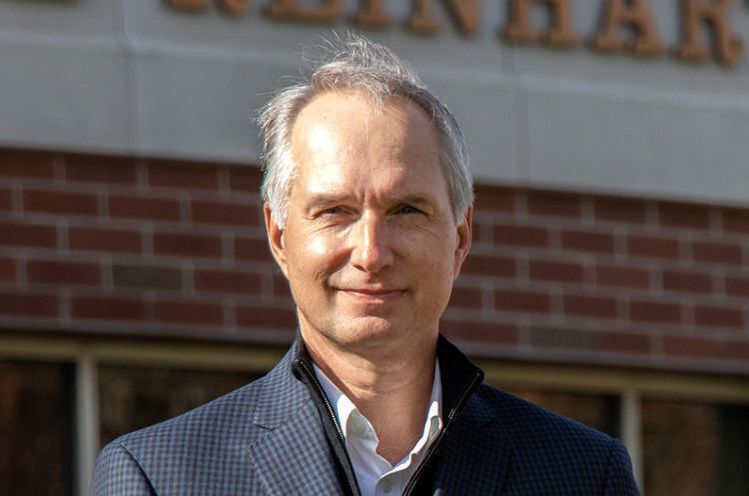Richard Kyte: Here’s why the Supreme Court must adopt clear ethical guidelines
Last February, the American Bar Association passed a resolution urging the U.S. Supreme Court to adopt ethics rules similar to the ones that apply to all other federal judges. The resolution was passed in the wake of an investigation by The Wall Street Journal finding that between 2010 and 2018, 131 federal judges had failed to comply with the Code of Judicial Conduct by ruling in cases where they had financial conflicts of interest.
Then last week, a report by ProPublica revealed the many expensive trips Justice Clarence Thomas took over the past two decades, all undisclosed and all paid for by major Republican donor Harlan Crow. It is yet another blow to a key government institution at a time when more Americans than ever believe justices’ opinions are overly influenced by political agendas.
Sen. Dick Durbin, chairman of the Senate Judiciary Committee, pledged to hold hearings on “the need to restore confidence in the Supreme Court’s ethical standards.” In a letter to Chief Justice Roberts, the Illinois Democrat wrote: “And if the Court does not resolve this issue on its own, the Committee will consider legislation to resolve it.”
But such legislation, if proposed, is unlikely to go anywhere. Last spring the House Judiciary Committee advanced a bill that would have required the court to adopt an ethics policy, but the House failed to vote on it.
Chief Justice John Roberts, more than any other chief justice, has acknowledged the importance of ethics for public trust. He even dedicated his 2011 Year-End Report to the topic. Yet, he has steadily maintained that the rules that apply to all other federal judges do not apply to justices in the Supreme Court.
Over the years I’ve been asked to review the ethics rules of many types of organizations, from government agencies, to nonprofit charitable organizations, to professional associations. While the rules differ somewhat from one organization to another depending on their mission and membership, one thing they all have in common is a set of provisions intended to eliminate conflicts of interest.
There are good reasons for this. Any organization that depends upon having a good reputation in order to fulfill its mission effectively needs to avoid the perception that the judgment of those in charge can be unduly influenced. Organizations that are essential to the health of society have an even greater obligation to ensure that they maintain public trust.
To see why, take a look at Canon 2(b) of the Code of Conduct for United States Judges:
“A judge should not allow family, social, political, financial, or other relationships to influence judicial conduct or judgment. A judge should neither lend the prestige of the judicial office to advance the private interests of the judge or others nor convey or permit others to convey the impression that they are in a special position to influence the judge.”
This is usually taken to mean that judges should recuse themselves in cases where they or their family members have a financial interest in the outcome of the case. Money is one kind of highly visible “personal interest” that has a history of influencing people’s judgement. However, money is not the only kind of personal interest at stake in cases that come before the courts. Money may be used to advance other kinds of personal interest.
In the wake of nearly any scandal involving the receipt of gifts by a public official, there will be a fierce denial that the gift had any influence on the recipient’s decision-making. We see this when doctors deny that a golf vacation paid for by a pharmaceutical company influenced what they prescribe to patients. We see it when legislators deny that tickets to a football game influenced their vote. We saw it a few days ago when Harlan Crow issued a statement saying, “We have never sought to influence Justice Thomas on any legal or political issue.”
But all of that misses the point. It is not that the gifts themselves can compromise someone’s judgement. It is that time spent with the people who supply the gifts can influence how they see things, perhaps not with regard to a specific case or issue, but in general, as a part of the worldview that shapes one’s perception of specific cases.
At some level, Thomas knows this. It is why he said in a documentary about him: “I prefer the Walmart parking lots to the beaches and things like that. There’s something normal to me about it.” Thomas was suggesting that part of the background knowledge he takes with him into chambers is an awareness of how ordinary Americans live.
Ethics rules are not a substitute for character. They do not ensure that people who are governed by the rules will be properly motivated, but they do provide some assurance that the most egregious behavior will be curbed. Most importantly, they serve as a statement of the high standards to which the justices pledge to hold themselves mutually accountable.
Roberts has stated that the Judicial Code of Conduct provides “guidance to” the Supreme Court justices, but he denies that they are bound by its rules. He refers to the Code of Conduct as “a starting point” and suggests that the justices, in virtues of unique status of the Supreme Court, must also consult a “wide variety of other authorities to resolve specific ethical issues.”
But all of that misses the point. Are the justices not answerable to one another? Can they not mutually agree to public standards of conduct to which they will hold themselves accountable? To say they are guided by many different standards is to imply they are answerable to none.
Why can’t our justices see the harm they are doing to themselves and to an institution they have promised to serve by refusing to pledge themselves to clearly stated public guidelines for ethical conduct?

